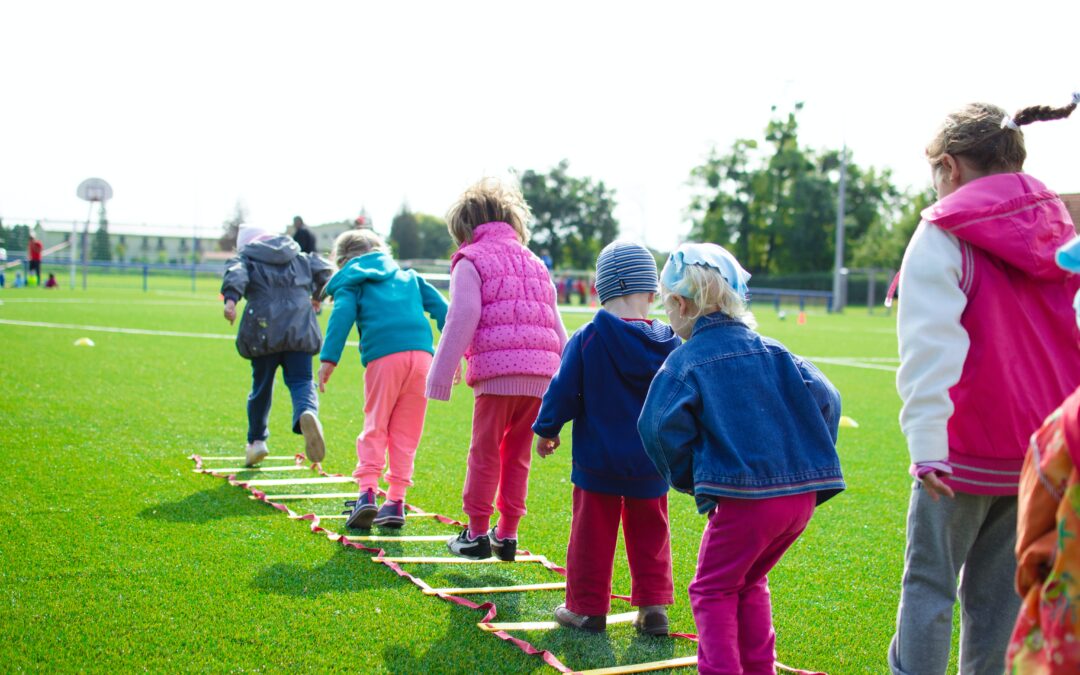In the past fourteen months, the entire world has struggled under the weight of the pandemic. Now, as more and more people are getting vaccinated, those weights have begun to lift. People are getting out, resuming life. But the truth is, the repercussions of the pandemic will be with us for quite a time to come—especially for our children.
Rewind to the end of 2019. Parents were going to work while their kids went to school. After school, kids would go to soccer practice, daycare, dance class.
And then the pandemic hit. Home became the office, school, the dance studio. Almost overnight, parents had to adjust to juggling client meetings with their children’s short attention spans, wrangling zoom, acting as both teacher and parent. Those who were considered essential workers found themselves in an even more difficult position, working hours that did not accommodate for their children being at home.
What is OST?
Out of school time, or OST, is the time a child spends learning outside of the classroom. It can refer to many things: after school programs, sports, camps, daycare, extended learning.
There has been a lot of research regarding OST and its benefits for children. OST, for example, offers parents a means of supervising and watching their children between the end of the school day and the end of the work day. Afterschool programming and daycare allows parents to work more hours, therefore earning more money than would otherwise be made if the parents had to be home to watch their children. These programs can also provide meals, emotional support, and safety, especially in lower-income families where a parent can’t take off work to watch their kids after school—or afford to pay someone else to do so.
From a curriculum standpoint, OST gives children a sense of structure and stimulates them in ways that might not necessarily be available during school hours. For example, many after school programs revolve around sports or the arts. These programs give children a way to develop their fine motor skills—something they don’t always learn sitting at a desk listening to the teacher. Often, these teams or classes occur on a weekly basis, giving kids a better sense of a schedule—and teaching them commitment on the way.
OST programs provide a foundation that boosts productivity, social skills, motor skills, and problem solving. It also gives children academic support and essential services for families. Daycare is a safe place for children to go after school. They get to interact with other children, both of their own age as well as those younger and older—in social situations, from random play to structured activities. This is not necessarily something they get in a classroom, grouped in a quiet environment with kids who are only their own age. Because they are getting these varied and essential experiences, OST programs form a support to enhance a child’s experience inside of the classroom.
According to the CDC, kids need to be safe, healthy, supported, challenged and engaged. One cannot rely on schools alone to provide children with these elements. Therefore, OST is essential to a child’s development, working in tandem with standard education to get our kiddos what they need. When we focus on a student’s comprehensive development through OST, their academic success and their well-being increase.
How Has the Pandemic Affected OST?
According to TX Post, 80% of a child’s learning time is spent out of the classroom. In 2019, kids’ OST happened before school, after school, and over the summer. In 2020, thanks to the pandemic, all learning time became OST. This meant a huge adaptation for everyone, from teachers, parents, employers, and children. Learning from Zoom is a challenge for everyone. Parents have to balance supervision with their own work. Teachers—many of whom are required to teach in-person children at the same time as those learning from home—battle children’s waning attention. Kids lose essential structure in their daily lives, the lines of learning and home blurring together.
Focus has been on the academic loss during the pandemic. It’s believed that more than 3 months of learning has been lost from the average child’s year. But that loss is not only academic loss, because the classroom is not the only place that children learn. Not being in daycare, soccer, or summer camps means kids have also lost essential time building social and emotional skills. Teamwork, leadership, collaboration—all these essential elements of a child’s education require socialization with other people. And there’s the physical aspect of it—without sports, dance, martial arts, kids are losing important opportunities to stay healthy through exercise.
As an after-school dance program, Leap of Joy falls into this category of OST learning. As a program that gears specifically to lower-income schools, we see first-hand how something as simple as a dance class can impact a child’s life. The pandemic forced us to completely adjust how we interact with our students. We’ve had to move entirely online, teaching Saturday classes and summer camps over Zoom. We’ve seen attendance drop, and attentions waver. And that’s for something that’s voluntary, fun, and low cost.
What Now?
The repercussions of the pandemic are going to follow us for a while. Losing so much time both in the classroom and outside it cannot be rectified immediately. Will we ever make up for the lost time? It’s difficult to say. Certainly, parents can’t account for missing work and potential lost wages. And for the kids? Along with the lost school time, these after-school and summer programs are essential to a child’s physical and mental development, and play important parts in helping to prepare them for the future. We still don’t know what the long-lasting effects will be. It’s likely that adjusting back to a “normal” school schedule will be a challenge in itself—adding to the setbacks.
In our next installment, we’ll talk about the situation here in Texas, and the important roles OST programs have played in keeping Texas students safe and healthy throughout the pandemic. While it has made many things difficult for us, there have been some really wonderful things to come out of the struggles. We’re at a crucial point in our education system, and hopefully by educating ourselves we can band together to help our children’s futures.


